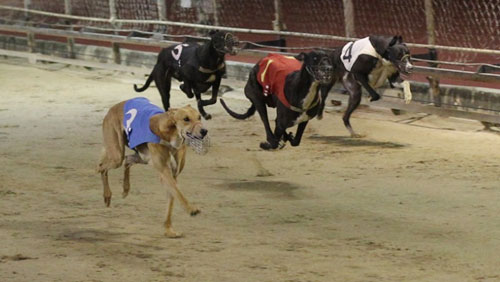It’s only been six months since the Canidrome, a greyhound racetrack in Macau, knew it would be closing its gates for good—or a year if you consider that the racetrack was informed in the summer of 2017 that it would have to close or move. Its owner, SJM Co-Chairman and Executive Director Angela Leong, knew she would need to find a new home for the canine runners, but  apparently was too busy to tend to the obligations. She requested a four-month extension of the July 21 deadline earlier this week, but the Macau Gaming Inspection and Coordination Bureau (DICJ, for its acronym in Portuguese) has denied the request.
apparently was too busy to tend to the obligations. She requested a four-month extension of the July 21 deadline earlier this week, but the Macau Gaming Inspection and Coordination Bureau (DICJ, for its acronym in Portuguese) has denied the request.
In its succinct but clear denial of the application, the DICJ said,“After comprehensive consideration, the DICJ has decided to veto. The DICJ reiterates that the dog club must move out of the original site no later than 20 July 2018.”
The Canidrome has been under fire for what animal rights activists have claimed to be improper treatment of the greyhounds, both during their time at the track and throughout the Canidrome’s closing. The race track most recently tried to relocate the animals to The Jockey Club, a move that was met with immediate backlash due to the lack of facilities at the club.
The potential move to the Jockey Club was not addressed in the DICJ rejection. It has previously stated that an application would have to be filed “by Macau Jockey Club to the authority for the supervision of land use and must be approved by the authority responsible for animal protection and management.” Apparently, that never happened.
The DICJ did, however, address Canidrome’s irresponsible performance. It said that the company failed to protect the canines’ welfare and pointed out that “other regions have gradually stopped dog racing activities” due, in part, to public sentiment over the treatment of animals.
The DICJ further indicated that dog racing was not a part of the Macau landscape that would propel it into becoming a global hub for tourism. It cited a plan that was submitted by Canidrome in June 2017 that proposed replacing greyhound races with live simulcast broadcasts of overseas and virtual races as being nothing more than a plan to “change the leisure and tourism elements of the dogs into pure gambling activities, failing to comply with the SAR Government’s responsible gambling policy.”